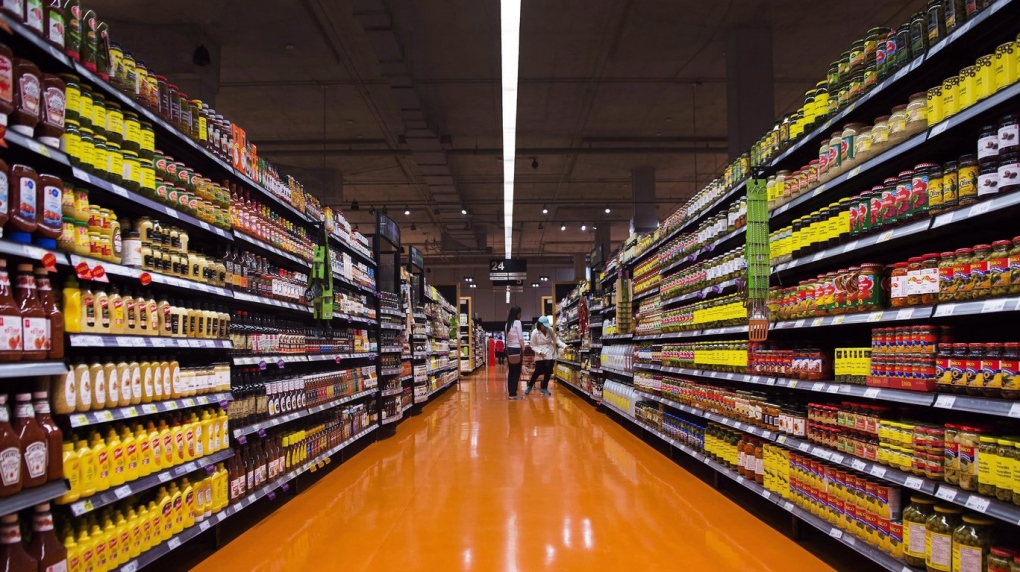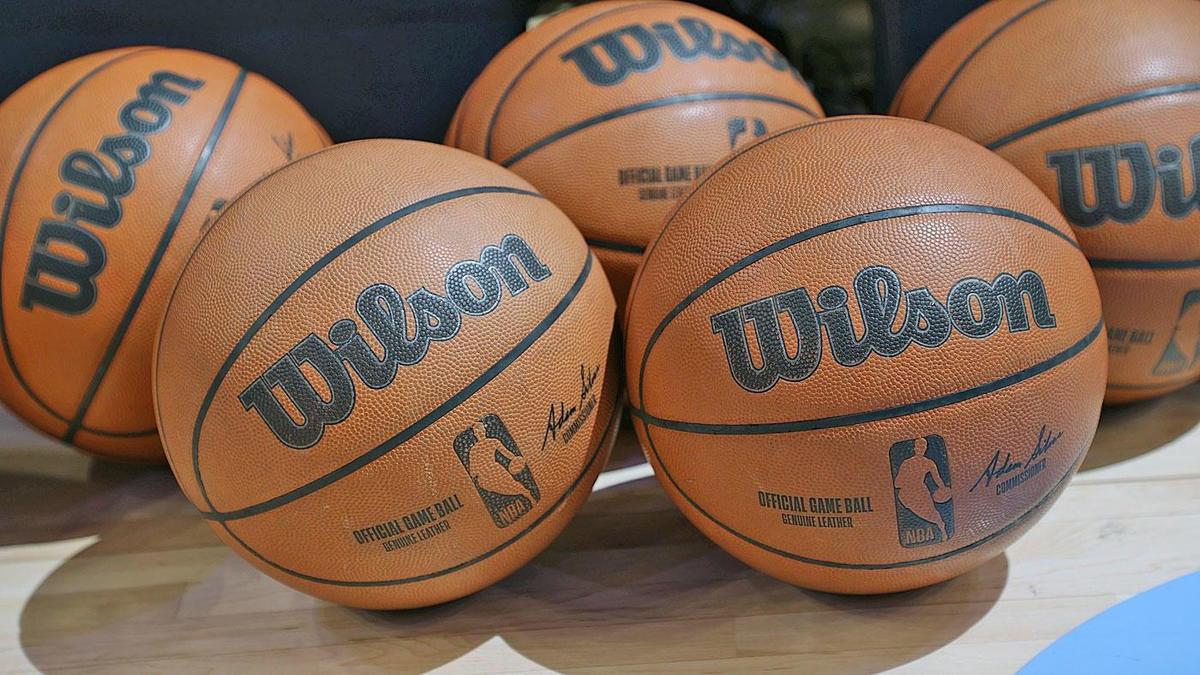Shopping
Why Canadians see the biggest grocers as the villains of food inflation

TORONTO –
Galen Weston may not be the president of grocery giant Loblaw anymore, but you wouldn’t know that based on how often his name and face appear in connection with the company: in memes, on social media, and now emblazoned across the top of a new Reddit forum dedicated to high food prices in Canada.
Emily Johnson, a mental health and addictions worker in Milton, Ont., created the page r/loblawsisoutofcontrol in November as a space to vent and make jokes. But when Loblaw made headlines in January for reducing its discounts on food nearing its sell-by date — a decision the company later walked back — the page saw thousands of sign-ups overnight. It now has almost 21,000members.
“I think that there had been a lot of frustration and resentment that had been building already. And this was kind of the straw that broke the camel’s back,” said Johnson.
The page is a testament to Canadians’ growing frustration with grocers, whose profits climbed as food inflation wreaked havoc on families across the country, peaking at 11.4 per cent before easing over the past year.
Against that backdrop, Canadians are increasingly turning a critical eye to the handful of companies that sell the vast majority of groceries, and experts say the grocers face an uphill battle to regain consumers’ trust.
The grocers, for their part, say they’ve been battling tens of thousands of price increase requests from suppliers and are doing their best to mitigate the rising tide of inflation.
Only Costco appears to escape the keen eye of strapped shoppers, tying with outdoor retailer MEC as the most trusted brand in Canada on the University of Victoria’s 2023 Gustavson Brand Trust Index.
Loblaw, meanwhile, ranked 304th on the list of more than 400 brands, “highlighting the challenge it faced in demonstrating value while it reported high profits,” the report said. Walmart was even lower, at 354. Metro ranked 93rd, while Sobeys was 110th.
The three Canadian grocers have come under particular scrutiny amid growth in both prices and profits, said Rachel Thexton of Thexton Public Relations.
“You certainly want your investors to be happy, and profits to grow with the business, but you also want to maintain the trust and the respect of the consumer.”
That’s why Loblaw’s discount change struck such a nerve, said Monica LaBarge, an assistant professor at Queen’s University studying food access and consumer well-being — it was a relatively small change, but one that consumers viewed as part of a wider problem.
Memories of the bread price-fixing scandal may have helped fuel Canadians’ growing skepticism, said LaBarge.
“There’s a sort of general feeling of, `Oh, here we go again,”‘ she said.
While there has been debate over whether their actual profit margins grew significantly, in dollar amounts it’s certainly been a good few years for the grocers.
But it’s been a difficult few years for many Canadians, said LaBarge, with food bank usage on the rise and consumers feeling like they’re bearing the brunt of inflation while the grocers are “doing just fine.”
“It feels very unjust when they’re continuing to make just as much money as they always have, and everybody else is suffering.”
For Loblaw especially, image problems have compounded since the beginning of the COVID-19 pandemic, said Thexton. Alongside simply being the biggest Canadian grocer, the company has made a series of public-relations missteps.
“Loblaws is the face of this because their communication has been so poor,” she said.
One example: after a price freeze on No Name items ended in early 2023, the company inadvertently stoked public backlash by responding to critical posts from the company’s official account on X (formerly Twitter), Thexton said.
“We may be the face of food inflation but we are not the cause. The staggering increase of costs throughout the food supply chain end up on our shelves, leading to higher food prices,” read one post on Jan. 31, 2023.
The company’s defensive tone struck a nerve with many Canadians, said Thexton.
A series of ads featuring Weston also didn’t sit well with consumers.
Weston, who in 2022 made almost $12 million in compensation through both Loblaw and George Weston Ltd., isn’t exactly a relatable figure to people struggling to afford food, said Thexton.
Making Weston the face of the company backfired, agreed Johnson.
“I think that by making himself the face of Loblaws, one of the most prolific grocers in Canada, he also made himself the face of everyone’s resentment.”
The Canadian Press reached out to Loblaw with detailed questions for this story, as well as Metro Inc., Empire Company Ltd. and Walmart Canada. Empire did not respond.
Loblaw empathizes with the challenges Canadians have faced amid inflation, said spokeswoman Catherine Thomas in an emailed statement. However, “retailers have faced a disproportionate amount of criticism despite cost increases from across the entire supply chain,” she said, noting that Loblaw’s internal measure of inflation has been lower than the consumer price index for the past few quarters.
“For our part, we know that grocers like Loblaw have more work to do to rebuild the trust we have enjoyed for more than 100 years and we remain highly focused on doing so,” said Thomas.
Metro spokeswoman Marie-Claude Bacon said the grocer’s efforts to mitigate the effect of rising food prices through things like private label products and promotions are working.
“Food prices have stabilized, but price stabilization is not simply achieved overnight, nor is it the exclusive responsibility of grocers,” she said in an emailed statement.
Like the other grocers, Walmart reiterated its commitment to keeping prices as low as possible.
However, even before food prices started rising, certain pandemic-era moves were already drawing negative attention to the grocers.
For example, Loblaw, Metro and Empire came under fire in 2020 after cutting pandemic bonuses, or “hero pay,” within a day of each other in June.
The same year, Walmart Canada and Loblaw each introduced new supplier fees to help pay for infrastructure investments. A buying group that represents Metro then told suppliers it expected to receive similar cost reductions to its competitors.
The move helped prompt work on a grocery code of conduct meant to level the playing field for suppliers and smaller grocers — but the code is currently at a standstill as Loblaw and Walmart have refused to sign it, citing concerns that prices will rise.
The code is just one talking point seized by politicians over the past year as they’ve summoned grocery executives to answer questions in Ottawa. Grocery leaders have also been grilled over rising profits, executive compensation and their plans to stabilize food prices.
All that political attention has definitely helped validate Canadians’ concerns, said Thexton.
But there are signs that Loblaw is starting to get the picture, she said — and reversing the discount reduction is one of them.
“Perhaps they’re … starting to understand that really hearing the consumer is vital for their business.”
Having Weston step back from a more public-facing role was also a good step, she said.
In April 2023, Loblaw announced that Per Bank would take over as president and CEO by the first quarter of 2024. Weston remains chairman of Loblaw and CEO of holding company George Weston Ltd.
Another initiative that Thexton said is a step toward rebuilding Loblaw’s reputation is a new discount program called “Hit of the Month.”
The program launched in February with four month-long deals across its banners, including boxes of Kraft Dinner for just 55 cents.
Whether the animosity toward grocers fades or is here to stay depends on the economy, and on grocers’ communication strategies, said Thexton.
“The grocers can turn this around,” she said. “Loblaws can turn this around.”
This report by The Canadian Press was first published Feb. 23, 2024.










